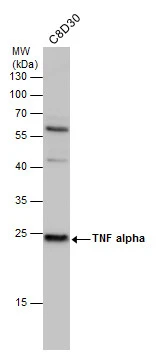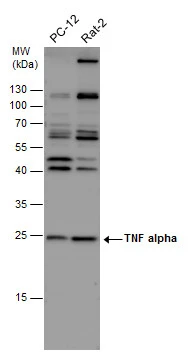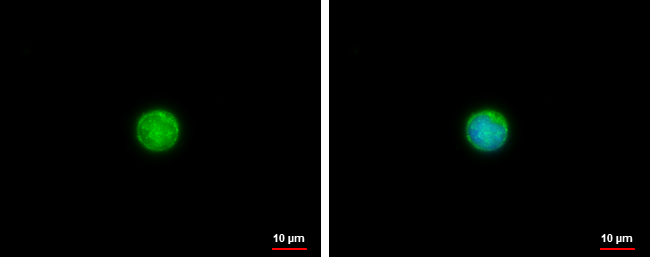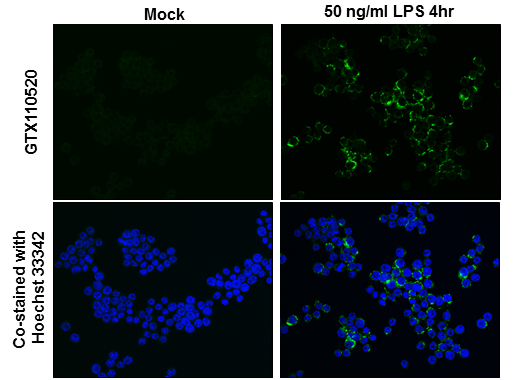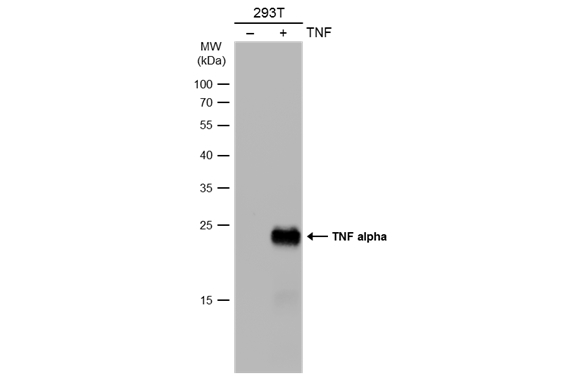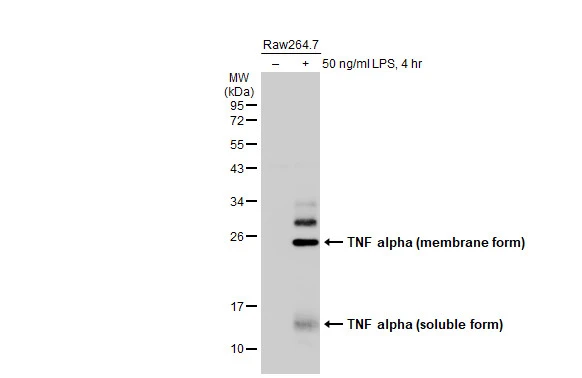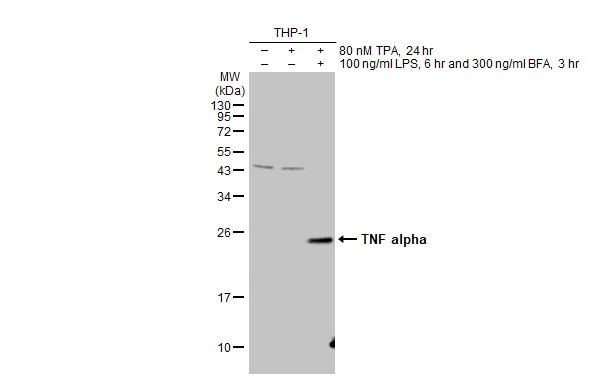TNF alpha antibody
Catalogue Number: GTX110520-GTX
| Manufacturer: | GeneTex |
| Preservative: | 0.025% ProClin 300|0.025% ProClin 300 |
| Physical state: | Liquid |
| Type: | Polyclonal Primary Antibody - Unconjugated |
| Alias: | tumor necrosis factor , DIF , TNF-alpha , TNFA , TNFSF2 , TNLG1F |
| Shipping Condition: | Blue Ice |
| Unit(s): | 100 ul, 25 ul |
| Host name: | Rabbit |
| Clone: | |
| Isotype: | IgG |
| Immunogen: | Full length human TNF alpha Recombinant protein. |
| Application: | ICC, IF, IHC-P, WB, IHC-Fr |
Description
Description: This gene encodes a multifunctional proinflammatory cytokine that belongs to the tumor necrosis factor (TNF) superfamily. This cytokine is mainly secreted by macrophages. It can bind to, and thus functions through its receptors TNFRSF1A/TNFR1 and TNFRSF1B/TNFBR. This cytokine is involved in the regulation of a wide spectrum of biological processes including cell proliferation, differentiation, apoptosis, lipid metabolism, and coagulation. This cytokine has been implicated in a variety of diseases, including autoimmune diseases, insulin resistance, and cancer. Knockout studies in mice also suggested the neuroprotective function of this cytokine. [provided by RefSeq]
Additional Text
Gene Name
TNF
Gene ID
7124
Uniprot ID
P01375
Concentration
0.28 mg/ml
Purification
Affinity Purified
Antibody Clonality
Polyclonal
Note
For In vitro laboratory use only. Not for any clinical, therapeutic, or diagnostic use in humans or animals. Not for animal or human consumption
Molecular Weight
26
Application Notes
WB: 1:500-1:3000. ICC/IF: 1:100-1:1000. IHC-P: 1:100-1:1000. *Optimal dilutions/concentrations should be determined by the researcher.Not tested in other applications.
Short Description
TNF alpha antibody recognizes tumor necrosis factor alpha protein, a cytokine with a predicted molecular weight of 26 kDa. TNF alpha is mainly secreted by macrophages, but is also produced by various immune cells such as neutrophils, T helper cells, and NK cells. Dysregulation of TNF alpha expression is associated with various diseases including cancers and autoimmune disorders.
Storage Note
Store as concentrated solution. Centrifuge briefly prior to opening vial. For short-term storage (1-2 weeks), store at 4C. For long-term storage, aliquot and store at -20C or below. Avoid multiple freeze-thaw cycles.
